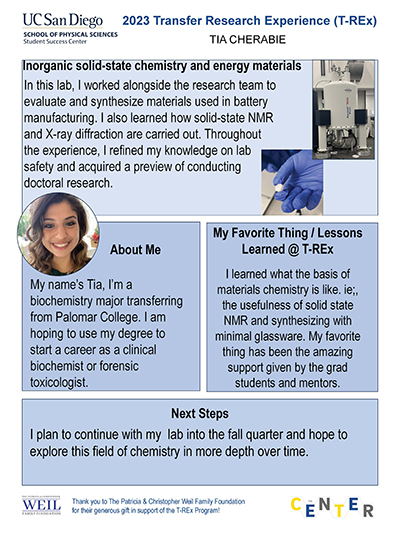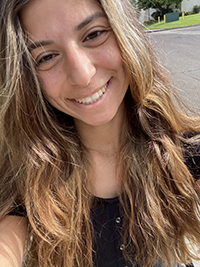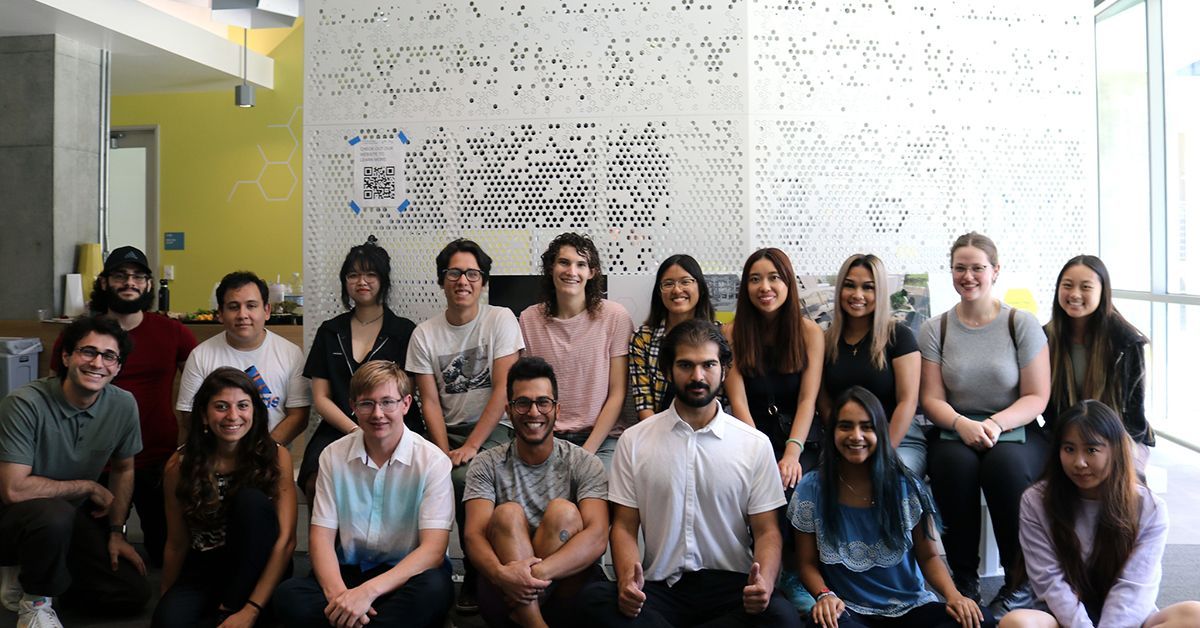Helping Transfer Students Thrive in Science
A new summer program gives students valuable research experience
Story by:
Published Date
Article Content
Stepping onto a college campus as a freshman can be daunting: juggling demanding coursework and forging new relationships, while also navigating a complex network of resources and planning for the future.
It can be even more overwhelming for transfer students, a higher percentage of whom are first-generation college students who may not be able to rely on family wisdom or connections to help them succeed at school. While other students have had two years to get acclimated, transfers are new to campus, yet are expected to drop in with the same understanding and skills as their third-year peers.
In the race to catch up, transfer students tend to focus exclusively on coursework and academic achievements without any time for the “extracurriculars,” which for STEM students can include gaining crucial time in a lab.
A four-week summer program at the University of California San Diego is designed to help incoming transfer students gain valuable research experience, meet peers and faculty, and build confidence before the school year starts. Launched last year as a pilot program, the Transfer Student Research Experience (T-REx) program will start its second year this summer.
Thomas Hermann, professor of chemistry and biochemistry and faculty advisor for the School of Physical Sciences’ Student Success Center, conceived and oversees the program. He believes that providing transfer students with extra support could help them start their journeys at UC San Diego on the right foot.
“Early immersion in research is key to building confidence and maintaining motivation for STEM students. Skills acquired during research experiences equip students with a realistic understanding of the scientific enterprise and attitude to cope with and overcome failure,” he stated. “These experiences serve to ground students in a healthy self-perception of their abilities as professionals in their chosen field.”
The program is supported partly through a donation by the Patricia & Christopher Weil Family Foundation, which has a long history of giving to UC San Diego. After Caitlin and Kit-Victoria Weil, who are both directors of the foundation, learned about the Student Success Center through a neighbor, they contacted the center to learn how they could support student programming.
“The Patricia & Christopher Weil Family Foundation is pleased to support UC San Diego's Transfer Student Research Experience Program. We particularly appreciate how this program allows transfer students from lower-income backgrounds to stay on a more affordable four-year track while keeping pace with the opportunities and experiences of their university peers,” stated Caitlin and Kit-Victoria Weil.

Once they were officially admitted to the university, transfer students were notified about the program through UC San Diego’s enrollment management office. The students who applied indicated that they were interested in careers ranging from teaching to industry research and medical school. The first T-REx cohort included 17 incoming transfer students; this year’s program will support 20 students.
Incoming transfer students were placed in a research group and offered an opportunity to interact with undergraduate researchers, graduate students, postdoctoral scholars and faculty mentors. The shadowing opportunity required a 10-hour weekly commitment over four weeks. Activities varied by research group, but some included performing experiments, participating in workplace tours, connecting with group members and attending group meetings. All students were instructed on the basics of lab safety and the proper use of personal protective equipment.
A crucial component to the program’s success is recruiting faculty who are actively conducting research and are willing to mentor students, as well as graduate students who act as advisors. For this, the chemistry department was a natural fit, not only because Hermann is a member of the department, but also because chemistry research tends to be very experimental.
Assistant Professor of Chemistry and Biochemistry Kent Griffith signed on to be a faculty mentor because he understands how instrumental research experience is for student success.
“Research is a vital part of the undergraduate experience for those considering a path in laboratory science or related fields. Undergraduates can contribute meaningfully to the research outputs from my laboratory, so it is a mutually beneficial experience,” he stated. “Transfer students cannot waste any time joining a lab and I wanted to help grant that opportunity.”

Tia Cherabie is a biochemistry major who transferred from Palomar College in nearby San Marcos, Calif. During her four weeks in Griffith’s lab, she learned about materials chemistry and the chemical makeup of batteries. She also learned how to synthesize solid-state materials, make electrodes, build batteries and how to test battery efficacy.
For her, the benefits of the program have lasted beyond the summer. “The T-Rex experience propelled me in multiple ways. I have continued as an undergraduate researcher in the Griffith lab, which has given me invaluable experience and continued my practical learning,” she said. “I have also made connections through the program with like-minded people I still keep in touch with.”
Cherabie hopes to work as a medical lab scientist and is already considering graduate school, stating, “I would love to integrate aspects of working in a materials lab into my future career.”
Eventually, the center wants to scale the program beyond 15-20 students: “The School of Physical Sciences has over 4,000 students, so it’s important that any program we implement has a significant impact on the population,” stated Hermann.
As the program grows, Hermann wants to advertise it at community colleges. This is, after all, where the transfer students come from. He believes it can be a useful recruitment tool because it showcases the kinds of resources UC San Diego provides to help all students thrive.
“Often when students don’t have experience, they don’t have confidence,” he stated. “This program helps them gain the confidence they need to succeed in academics, in research-focused jobs and beyond.”
Share This:
Stay in the Know
Keep up with all the latest from UC San Diego. Subscribe to the newsletter today.




